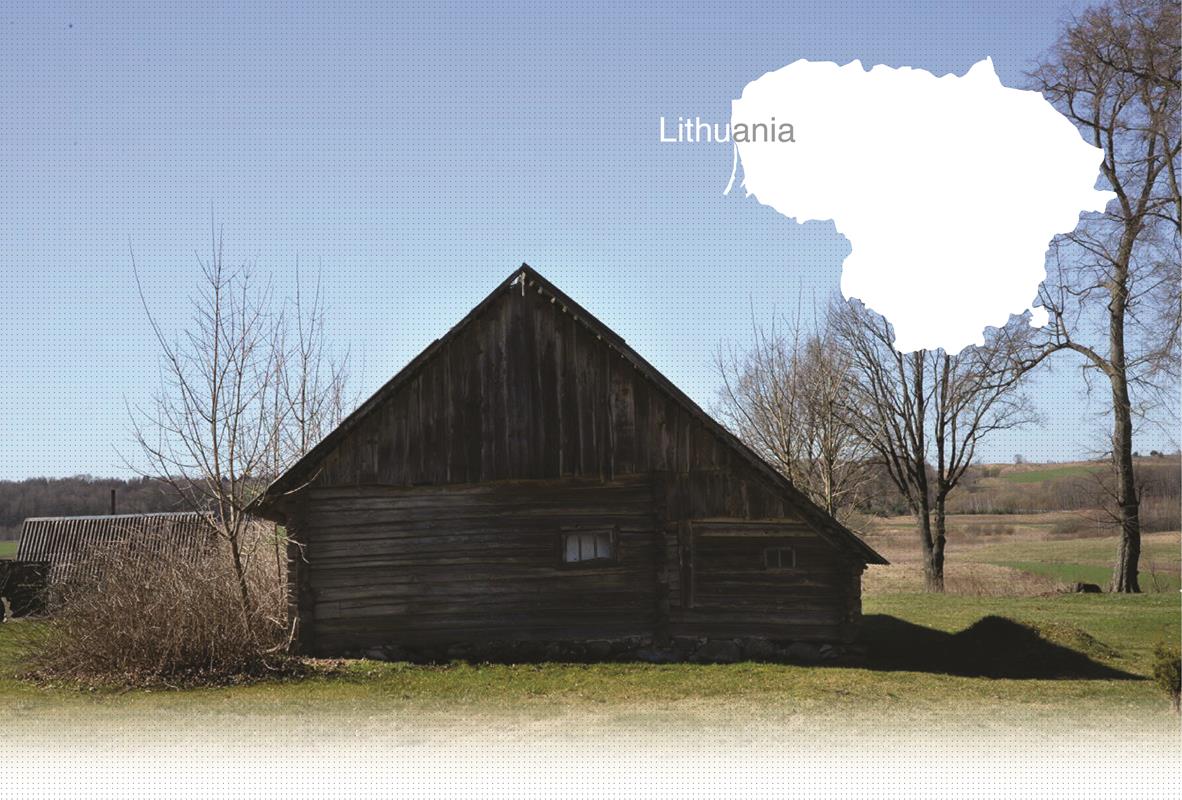

3 Sitio(s) de ejecución
Antanas J., who followed the column of Jewish men: "We wanted to know where the Jews were being taken. We didn’t know that they were being taken to be shot. /…/ They stopped on the road. There were some sand pits along the road as people dug sand there for stoves and plastering. The Jews were told to sit in those pits. There were clay pits near Palanga road, closer to the forest. That’s where the Jews were shot. They were taken in smaller groups. The rest of them sat and waited their turn. They could have escaped…" (Eyewitness N°83, interviewed in Darbėnai, on October 12, 2014).
Darbėnai village and manor were first mentioned in 1591. The number of inhabitants grew steadily and a village with 24 Jewish families in 1764 had turned into a small town with over 1000 Jews by 1897. During the interwar period, many local Jews emigrated to Canada, the USA, South Africa and Palestine. Just before the Second World War, there were around 800 Jews in Darbėnai (about 80% of all residents). They were mostly traders and craftsmen. There was a synagogue, a Jewish meeting house, several schools, a Jewish library, a local Zionist and social democrats bureau, a theatre and sports clubs in Darbėnai.
As soon as the German army occupied Darbėnai on June 24, 1941, it was set on fire. The Jews were accused of causing the fire, abused, humiliated, used for forced labor and forced to wear Stars of David. A few days later, German officers gathered all the Jews and separated the men from the women and children. About 150 Jewish men were executed at the edge of the forest outside Darbėnai. Witness Antanas J. remembers that it was Sunday when he followed the column of Jewish men.
The Jewish women and children were locked and guarded in the synagogue. Witness Ona M., who brought food for them, recalls that "Jewish women went outside to work and sweep the streets. Others stayed inside." They were kept there for several months and executed at two different sites in the forest near Darbėnai by Lithuanian white armbanders. The killings were exceptionally brutal as they used metal rods and wooden clubs, which were later found in the pit with the bodies, to kill the Jewish women and children. More than 500 Jews were executed near Darbėnai.
¿Tiene información adicional con respecto a un pueblo que le gustaría compartir con Yahad?
Por favor contáctenos a contact@yahadinunum.org
o llamando a Yahad – In Unum at +33 (0) 1 53 20 13 17